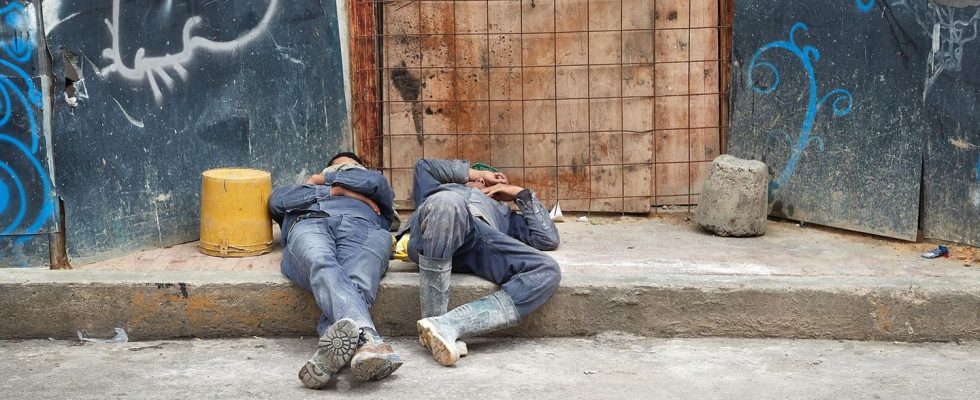Flexible working time models
Debate about siesta in the heat: praise from the German trade union federation – family entrepreneurs wave off
Will there soon be a siesta at lunchtime in Germany?
© IMAGO / Panthermedia
In the discussion about the introduction of a siesta in hot spells in Germany, the German Trade Union Confederation (DGB) spoke out in favor of the medical officers’ demand. Others, however, reject the idea.
“Protecting employees from heat is the employer’s responsibility – and the protection must be precisely tailored to the respective workplace,” said DGB board member Anja Piel of the “Rheinische Post”. “Letting the working time to take place during the cooler hours of the day is a conceivable instrument,” Piel continued. In the office, effective sun protection is also part of it – “for example, that blinds stay open at night and the ventilation runs through”. Removing heat sources such as printers and copiers from workspaces, relaxing the dress code and providing drinks also helped, Piel said.
Occupational health and safety already offers good guidelines and at the same time the necessary flexibility for individual solutions in the companies. However, since not all employers implement this, “more controls and more staff are needed in the occupational safety authorities,” Piel demanded.
On Tuesday there was a discussion about a longer lunch break in Germany due to the heat. “When it’s hot, we should be guided by the way southern countries work: getting up early, working productively in the morning and taking a siesta at noon is a concept that we should adopt in the summer months,” said the chairman of the Federal Association of Physicians in the Public Health Service ( BVÖGD), Johannes Nießen, the editorial network Germany (RND). “Siesta in the heat is certainly not a bad suggestion,” wrote Federal Health Minister Karl Lauterbach on Twitter.
Siesta in the heat: start earlier to finish earlier
The President of the Association of Family Entrepreneurs, Marie-Christine Ostermann, spoke out against the proposal. “When the temperatures are high, employers are already called upon by occupational safety regulations to take measures to ensure that work is tolerable. I don’t see the need for a nationwide, possibly legally stipulated siesta in the summer,” she told the “Rheinische Post”.
Ostermann referred to models such as trust-based work and flextime. In many jobs, these offer the possibility anyway – as far as the work process allows – to start work early on hot days.
Left boss Janine Wissler said that the Siesta requirement could “be a good individual solution”. “However, you also have to keep in mind that people have to travel longer and longer to get to work,” she told the Funke newspapers on Wednesday. It is not possible that people “at some point will no longer be able to be at home by extending the working day”.
Weather in Germany
Blazing heat, sharp winds and storms – this is what summer looks like
In view of the growing number of hot days, Wissler called for an upper temperature limit for outdoor work. “In extreme heat of around 37 degrees, work has to be stopped in certain professions where protection is not possible and a summer allowance has to be paid,” she told the Funke newspapers.

